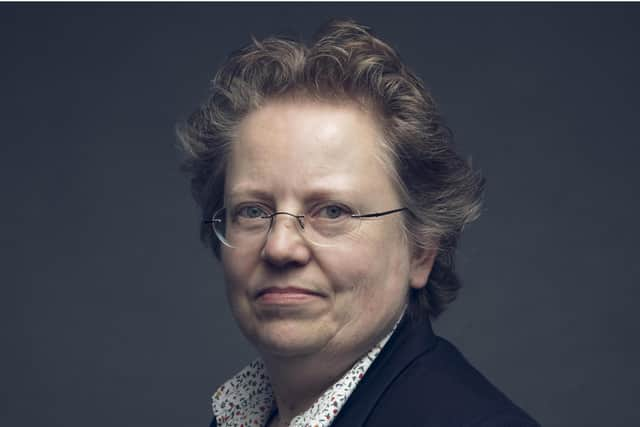Battleground Yorkshire: The main parties need to be braver on social care
“Social care is a funny old thing really. It was set up as a separate system to the NHS because of the decisions made by Bevan and all the people around him in the 40s,” says Ms Abrahams.
“I think if he was with us today, the great man that he was, and he looked at the fact we’ve got an ageing society, I think he’d acknowledge that actually it was a mistake to separate off social care and that it probably should have been part of the same system.”
Advertisement
Hide AdAdvertisement
Hide AdSocial care, unlike the majority of the UK’s health services, is not free at the point of use.


It is expensive, understaffed, and oversubscribed with a broken market to provide it: an issue that is only going to get worse.
Between 2011 and 2021 the average age in England and Wales rose from 39 to 41, with over 11 million people now aged 65 or older.
Projections from the ONS suggest that over the next 15 years there will be a million more people over the age of 85.
Advertisement
Hide AdAdvertisement
Hide AdWith a ticking time bomb of cost attached to solving this crisis, the main parties are avoiding the issue.
“As we head into the election, the political parties are quite worried about getting caught out by saying something that doesn’t go down well with the electorate,” says Ms Abrahams.
“I don’t think we should definitely assume from this that they don’t think it’s important, or that there won’t be things that they will commit to doing.
“But they’re going to be cautious about getting themselves into a hole. With the “dementia tax” that befell Theresa May when she went to the county, she thought she was putting forward some proposals that were going to really help.
Advertisement
Hide AdAdvertisement
Hide Ad“That’s not what the electorate heard. They heard that they will have to pay for social care, which of course, a lot of people do anyway.
“Because people don’t understand much about social care, her good intentions were misinterpreted.”
Despite this, the recent past does give some home to solving the problem.
Boris Johnson had an ambition to fix social care, even managing to get an unpopular tax-rise through his own MPs in order to help fund reforms to the system.
Advertisement
Hide AdAdvertisement
Hide AdHis plan failed, however, and it was added to the long list of policies killed by short-termism and lack of political ambition when it comes to reform.
The next government however, can take hope from the fact that parliament and the electorate are able to get behind a plan when the need for it is explained properly.
“It is only central government that can sort it out,” says Ms Abrahams.
“The truth is that we’re going to have to spend more as a country, and that means someone like me putting my hands in my pocket and actually paying a bit more for social care.
Advertisement
Hide AdAdvertisement
Hide Ad“That’s principally why the parties are reluctant to talk about it before an election. I’d be really disappointed and very angry if they don’t get onto it really fast when they get into government.
“The incoming government, whoever they are, needs to level with the public about the difficult choices that lie ahead and try and think about how we can create long-term sustained change.”
Older people are more likely to vote than their younger counterparts. This creates a system where the main parties are, understandably, terrified of upsetting them.
Despite this, there is no champion within government and public bodies dedicated to their needs.
Advertisement
Hide AdAdvertisement
Hide Ad“There isn’t a minister and there isn’t a commissioner, there isn’t a unit. Nobody actually sits in government and thinks about older people as such. Nor are there any real mechanisms to ensure that the views and interests of older people get conveyed into government,” says Ms Abrahams.
“We’re saying it’s time for an older people’s commissioner in England. There’s already one in Northern Ireland and Wales, they make a difference.
“Because we’re greedy, we’d like a minister as well. Someone in Whitehall standing up for older people and just thinking about what matters to them.
“I think if there had been someone like that during the pandemic, then some of the decisions that were made not terribly well, that ended up not doing older people a lot of good, might not have been made.”
Comment Guidelines
National World encourages reader discussion on our stories. User feedback, insights and back-and-forth exchanges add a rich layer of context to reporting. Please review our Community Guidelines before commenting.